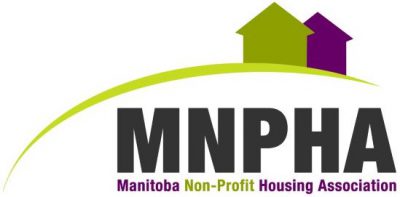2022 Manitoba Budget Analysis
The 2022 Manitoba Budget was released on April 12. There are no new investments in non-profit and affordable housing, however there are a number of budget items that will impact the sector and the tenants it serves:
Hard Numbers
- A Renters Credit will provide all renters, except those receiving Employment and Income Assistance, an annual credit of $525. Manitobans in social housing, including those who pay rent-geared-to-income rents and those receiving non-EIA Rent Assist, will qualify for the Renters Credit for the first time. This is an investment of $24m.
- The Education Property Tax Rebate will be increased from the 25% rebate in 2021 to a 37.5% rebate in 2022. As was announced last year, in recognition of the tax savings accruing to property owners, the rent increase guideline will remain 0% in 2022 and 2023.
- Capital investments in Housing will decline slightly, which will have the most noticeable impact on Manitoba Housing and the non-profit organizations that have sponsor management agreements and are dealing with capital repair needs. Despite major cost increases, Strategic Infrastructure Investment of buildings, equipment, and technology for Housing will decrease from $67.341m in 2021 to $67.04m in 2022, then to $67m in 2023 and 2024.
Future Investments
The Budget also references three strategies that will take a ‘whole of government’ approach that have an impact on housing.
- The Homelessness Strategy will be released in Spring. This strategy includes an emphasis on prevention, Indigenous-led responses, and increasing housing with supports. Though the budget does not yet provide for these, it’s important recognition of the priorities in the non-profit housing and homelessness sectors.
- An extensive engagement will be unfolding over 2022/23 to inform a seniors strategy and action plan that will be a broad-based whole of government policy and program approach. This approach will involve working with older Manitobans, communities, and agencies to provide advice for the design of the seniors strategy and action plan, to recommend priority investments, and to take early action. One of the goals of this strategy is for aging Manitobans to be able to stay safe in their own homes and communities as long as they choose.
- The budget makes an investment of $17.1m to support the first year of the Pathway to Mental Health and Community Wellness Roadmap. This roadmap includes investments in housing with supports, and a specific focus on safe, affordable housing.
MNPHA’s Analysis
The budget prioritizes making life more affordable, building our economy, and investing in our communities. It is our belief that affordable housing needs to be a central pillar in these aims. Manitoba’s “What we Heard” documents on its next 3-Year Housing Strategy demonstrates that stakeholders in housing, and the general public polled in the engagement, identify a need for more affordable rental housing, followed by housing with supports for ‘vulnerable’ populations. While the Renters Credit and continued investments in programs such as Rent Assist and the Canada-Manitoba Housing Benefit provide some relief to low-income renters, they do not address the critical need for deeply affordable housing that offers dignity and community to the lowest income Manitobans, including populations prioritized through government strategies such as women fleeing domestic violence, people experiencing homelessness, and seniors.
MNPHA and its members will be working over the next year to encourage the Manitoba Government to utilize and leverage the investments provided by the National Housing Strategy to address escalating issues in affordable housing in our province, including to achieve our priorities of:
- Establishing a long-term capital funding program to support existing non-profit housing stock and build new supply
- Enhancing and sustaining resources for tenant supports within non-profit housing
- Supporting an Indigenous-led housing strategy
The Cooperative Housing Federation of Canada has also put out a budget response here calling on the Manitoba government to support low-income households through long-term rental assistance programs that allows them to afford to stay/live in Cooperative Housing as agreements expire.

Recent Comments